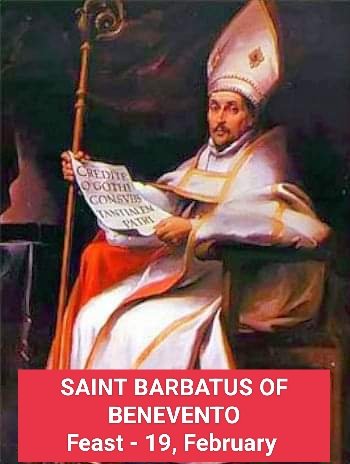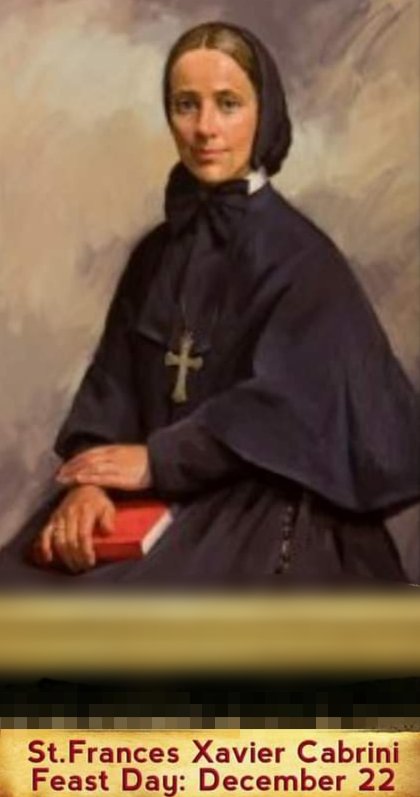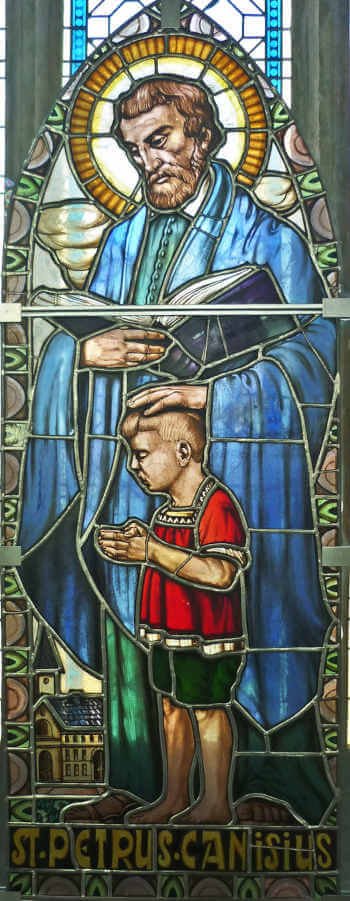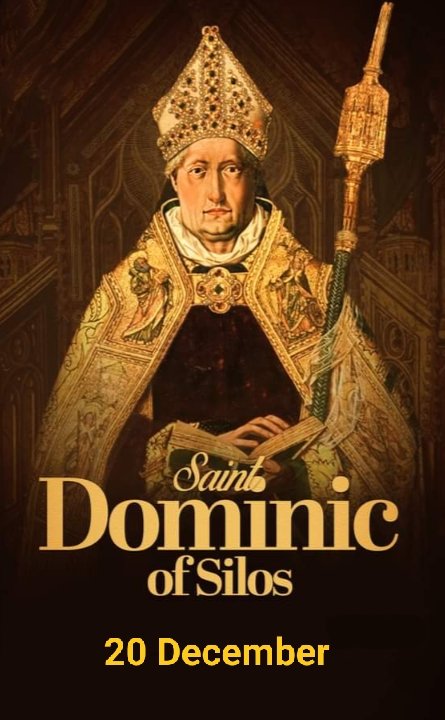
MONTHLY DEVOTIONAL FOR 18th FEBRUARY
February 18, 2024
John 1:29
February 19, 2024SAINT BARBATUS OF BENEVENTO
BISHOP – 19 FEBRUARY
St. Barbatus was born in the territory of Benevento in Italy, toward the end of the pontificate of St. Gregory the Great, in the beginning of the seventh century. His parents gave him a Christian education, and Barbatus in his youth laid the foundation of that eminent sanctity which recommends him to our veneration.
The innocence, simplicity, and purity of his manners, and his extraordinary progress in all virtues, qualified him for the service of the altar, to which he was assumed by taking Holy Orders as soon as the canons of the Church would allow it. He was immediately employed by his bishop in preaching, for which he had an extraordinary talent, and, after some time, made curate of St. Basil’s in Morcona, a town near Benevento. His parishioners were steeled in their irregularities, and they treated him as a disturber of their peace, and persecuted him with the utmost violence. Finding their malice conquered by his patience and humility, and his character shining still more bright, they had recourse to slanders, in which their virulence and success were such that he was obliged to withdraw his charitable endeavors among them.
Barbatus returned to Benevento, where he was received with joy. When St. Barbatus entered upon his ministry in that city, the Christians themselves retained many idolatrous superstitions, which even their duke, Prince Romuald, authorized by his example, though son of Grimoald, King of the Lombards, who had edified all Italy by his conversion. They expressed a religious veneration for a golden viper, and prostrated themselves before it; they also paid superstitious honor to a tree, on which they hung the skin of a wild beast; and those ceremonies were closed by public games, in which the skin served for a mark at which bowmen shot arrows over their shoulders. St. Barbatus preached zealously against these abuses, and at length he roused the attention of the people by foretelling the distress of their city, and the calamities which it was to suffer from the army of the Emperor Constans, who, landing soon after in Italy, laid siege to Benevento.
The people, in their fear, renounced the practices Barbatus had criticized. He then cut down the tree the locals had worshipped, and melted the viper into a chalice for use in the church.
After the public tranquillity was restored St. Barbatus was consecrated bishop on the 10th of March, 663. He pursued and completed the good work which he had so happily begun, and destroyed every trace of superstition in the whole state. In the year 680 he assisted in a council held by Pope Agatho at Rome, and the year following in the Sixth General Council held at Constantinople against the Monothelites.
He did not long survive this great assembly, for he died on the 29th of February, 682, being about seventy years old, almost nineteen of which he had spent in the episcopal chair.
The Roman Martyrology lists Barbatus as one of the chief patrons of the city of Benevento. The relics of St. Barbato Montevergine rest partly in the Cathedral of Benevento.
– From Butler’s Lives of the Saints, Benziger Bros. ed. [1894]PATRON: Benevento, Italy.
REFLECTION: “Do not conform to the mentality of this age…”, St. Paul said. Yes, we must not abide today’s mentality because it will not bring us closer to Christ otherwise it causes us to be worldly and hedonistic. We may be like St. Barbatus who fight against these errors of hedonistic lifestyle and comfortable living. We are Christians, our life must be a life of suffering and pain because we know our comfort lies above in heaven.
PRAYER:
Almighty Ever-living God, who chose blessed Barbatus to preside as Bishop over your holy people, we pray that, by his merits, you may bestow on us the grace of your loving kindness. Through our Lord Jesus Christ, your Son, who lives and reigns with you in the unity of the Holy Spirit, one God, for ever and ever. Amen.

*****************************************************************************
FEAST OF SAINT CONRAD OF PIACENZA
FEAST DAY – 19th FEBRUARY
Conrad, [1290 or 1284, (uncertain birth date – 19 February 1351)] was an Italian penitent and hermit of the Third Order of St. Francis, who is venerated as a saint. He was born Corrado Confalonieri, a member of one of the noblest families of Piacenza, in the town of Calendasco, a fiefdom of his family. The date of his birth is uncertain. He married an aristocratic young woman named Ephrosyne when he was quite young. Though pious, he led the normal way of life for a man of his station. Conrad’s conversion is connected to an incident of accidental arson.
One day, as he was engaged in his usual pastime of hunting within his family’s domain, he ordered his attendants to set fire to some brushwood in which game had taken refuge. The prevailing wind caused the flames to spread rapidly to the surrounding fields and forest. A peasant who happened to be found near where the fire began was accused of starting the blaze and was imprisoned, tortured to confess, and condemned to death. As the man was being led to execution, a remorseful Conrad publicly admitted his guilt to the Signoria of the city.
As punishment and reparation for the damages he had caused, the city seized all his assets, only sparing his life due to his noble status. Thus reduced to poverty, and seeking penance for his act of cowardice, Conrad and his wife saw the hand of God in this event. As a result, in 1315 they agreed to separate and Conrad retired to a hermitage near the town of Calendasco, joining a community of hermits, who were Franciscan tertiaries, while his wife became a nun of the Order of Poor Clares at their monastery in the city.
Conrad soon developed a reputation for holiness, and the flow of visitors left him unable to keep the solitude he sought. He then embarked on the life of a pilgrim, going to Rome, and from there to the Holy Land and Malta and, about 1340, to Palermo in Sicily, where he was directed to an isolated site in the Val di Noto. After many years of an itinerant life, he settled there in a grotto now named for him and for the rest of his life spent a most austere and penitential life of solitude, working numerous miracles, and gifted with prophecy.
In 1343 Conrad felt called by God to serve the local people more directly and in 1343 went to the city of Netum, where he cared for the sick at the Hospital of St. Martin there for the next two years. He lived in a hermitage attached to the Church of the Crucified Christ occupied by the Blessed William Buccheri, a former equerry to King Frederick III of Sicily, who had also taken up a life of solitude and prayer. Conrad would regularly return to his grotto for silent prayer. His fame was such that in 1348 the Bishop of Syracuse, Giacomo Guidone de Franchis, went to his hermitage to beg his prayers for the relief of a famine afflicting the island.
Conrad died while in prayer, kneeling before a crucifix, on 19 February 1351, the day he had predicted. At his request, his body was buried at the Church of St. Nicholas, the principal one of the city. After the city was leveled in an earthquake in the 1690s, it was transferred to the new church of the same name built in the relocated city, now called Noto, which now serves as the cathedral of the region.
Conrad is especially invoked for the cure of hernia. This comes from miracles attributed to him. The legend relates that he was visited at his hermitage by a former friend and companion in arms, Antonio da Stessa, from Daverio. His friend was suffering from the pain of a hernia he had developed. Seeing the pain his old comrade was suffering, Conrad was moved to pity and prayed for him. Stessa was immediately cured of the hernia.The same outcome was accomplished for a local tailor, who suffered severely from several hernias.
The miracle for which Conrad is best known is the “Miracle of the Bread”. This developed during the aforementioned famine which afflicted Sicily as a result of a severe outbreak of the bubonic plague on the island during 1348–49. During that catastrophe, anyone who approached the hermit for help was given a loaf of bread, still warm, which, it was said, he had received from the angels. During a severe famine, people asked for his prayers. When relief came, his fame spread and he was constantly visited by people seeking help. A number of miracles were attributed to him, and they continued at his tomb after he died. People suffering from hernias often ask for his intercession.
Shortly after Conrad’s death, his demonstrably holy life and the large number of miracles attributed to him led the leadership of the city to request that the Bishop of Syracuse, to which diocese Noto belonged, begin the process for his canonization. When the waiting period required by Church law expired in 1485, this process was opened by Bishop Dalmazio Gabriele, O.P., who had himself witnessed the Miracle of the Bread. As part of the process, Conrad’s body was exhumed for examination, and was found to be incorrupt, and placed in a silver urn for the veneration of the public.
Pope Leo X beatified Conrad on 12 July 1515 and permitted the town of Noto to celebrate his feast day. On 30 October 1544, Pope Paul III extended permission to the whole island. On 2 June 1625, he was canonized by Cardinal Odoardo Farnese, who was the Duke of Parma and Piacenza in a solemn ceremony at the cathedral of Piacenza, where it was declared an obligatory feast.
On 12 September of that same year, permission was granted to the Franciscan Order by Pope Urban VIII for a distinct text for the Divine Office and Mass to be used for his feast; today it is celebrated solely by the Third Order of St. Francis to which he belonged. In Vietnam there is a popular devotion to Conrad. On his feast day, the Parish Church of San Corrado in Noto commemorates him by the distribution of blessed bread.
PRAYER
Heavenly Father, your servant, Saint Conrad, lived a life of holiness, and was sought out for advice and spiritual direction. Although he lived in great solitude, people found him, to invoke his aid, and he never disappointed them.
You worked many miracles through the invocation of his name by those who sought his intercession. May we learn from his example, to render selfless help to the needy and miserable. We ask this in the Name of Jesus the Lord. Amen
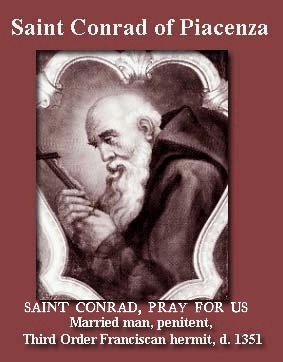
St. Conrad of Piacenza, the husband who found God when he took responsibility for arson, pray for us!

